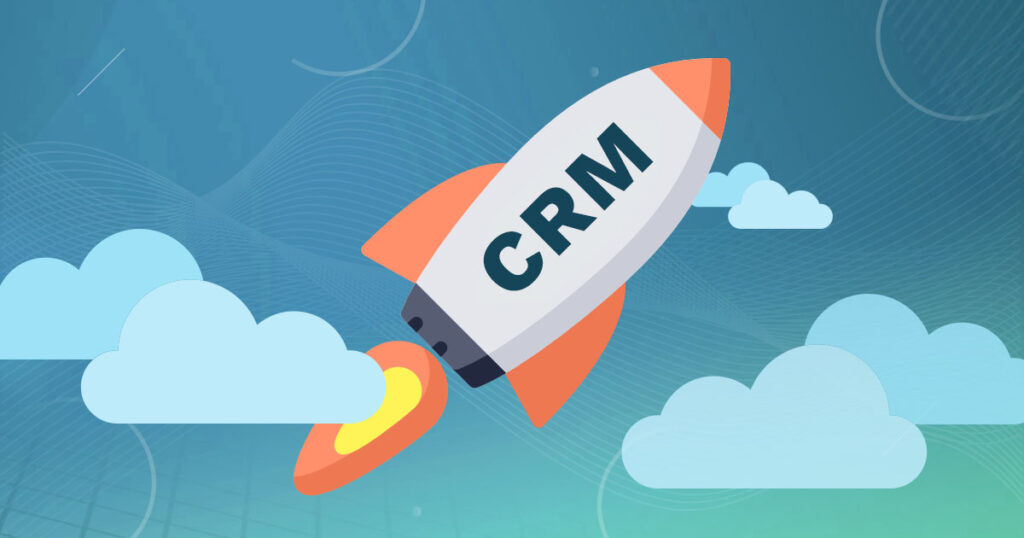Name a more iconic duo. (We’ll wait.)
With the rise of digital marketing, customer relationship management (CRM) and marketing automation (MA) have become essential tools in the modern marketer’s toolbox.
Individually, these two solutions are powerful. But when they come together? They unlock a world of possibilities.
Today, we’re going to explore the harmonious union of CRM and MA, including:
- A brief overview of both technologies
- How your CRM and MA work together
- Considerations for integrating your CRM with MA
- Common implementation challenges you may face
- How our expert consultants at MAC can help you create synergy between your CRM and MA
Now, let’s introduce you to this digital marketing power couple.
A CRM is a type of system that manages a company’s interactions with both current and potential customers.
CRM systems are robust tools that go beyond managing customer relationships. They can:
- Track sales activities
- Manage leads
- Integrate with social media platforms
- Offer customer service functionalities
They also allow for detailed data analytics, helping businesses understand their customers’ behaviors and preferences better. Some CRM systems even feature AI-driven insights, predictive analytics, and automation of routine tasks.
On the other hand, MA systems offer a wide array of features, such as:
- Email marketing
- Lead management
- Lifecycle tracking
- Lead scoring
- Compliance program nurturing
They ensure compliance with various marketing regulations. MA systems can easily integrate with third-party platforms and often come with custom APIs for seamless connectivity. They’re designed to automate repetitive tasks, allowing marketing teams to focus on strategic, creative aspects of their campaigns.
Together, CRM and MA systems form a powerful duo that can streamline business processes, enhance customer relationships, and drive marketing effectiveness.
At this point, you might already see how the worlds of customer relationship management and marketing automation intertwine—but we’re just getting started!
The integration of your CRM and MA represents the alignment of two pivotal business tools.
Imagine a platform where optimized marketing strategies coexist seamlessly with enhanced customer relations—that’s what this integration promises.
The goal? To harness the rich customer insights from your CRM and amplify them with marketing automation.
The result? Precision-driven campaigns that hit the mark, speaking directly to your audience with impeccable timing and relevance.
And the best part is that your ROI will increase as customer loyalty rises. It’s a win-win for everyone!
Benefits of Integration
Here are a few of the advantages you can look forward to:
- Efficiency: By integrating your CRM and MA, you can automate repetitive tasks, freeing up your team’s time to focus on strategic and creative work. Your marketing department will become a well-oiled machine, operating at peak efficiency.
- Personalization: With combined data from your CRM and MA, you’ll have a deeper understanding of your customers. This means you can deliver highly personalized content that resonates with your audience, improving engagement and conversion rates.
- Data Accuracy: The integration ensures that data between the two systems is synchronized, eliminating any inconsistencies and providing you with accurate, up-to-date customer information.
- Improved Customer Journey: Your CRM and MA integration allows you to map out your customer journey accurately. You can track their interactions with your business, predict future behavior, and design campaigns that cater to their specific needs and preferences.
- Increased ROI: With improved targeting capabilities and efficiency, your marketing efforts will yield a higher return on investment. You’ll be able to attract and retain more customers, boosting your bottom line.
Remember, the key to reaping these benefits lies in a successful integration. It’s not just about having the two systems—it’s about making them work together seamlessly.
This integration might sound simple on paper. But in reality, it can be a tricky process. That’s why it’s important to take a few key considerations into account:
Choosing the Right Tools
The market is flooded with various software options, each offering unique features and benefits. It’s crucial to select tools that align with your needs and objectives.
You’ll want to consider factors like:
- The size of your business
- The complexity of your marketing strategies
- Your budget
- The specific features you require
Note: it can be beneficial to work with a marketing automation consultant to streamline this process for you. (More on that later!)
Ensuring Data Compatibility
Data compatibility is another critical consideration when integrating CRM and MA. These systems will need to share and process data seamlessly to function effectively.
Ensure the chosen tools handle the same data formats. You should also consider how the data will be transferred between the two systems and ensure that there are no data duplication or loss issues.
Training Staff on New Systems
It’s important to remember that the success of any new technology depends largely on how well the staff can use it. Plan for comprehensive training sessions that cover all the aspects of the new system.
You’ll want to cover topics like:
- The overall functionality of the system
- How to input and interpret data
- How to troubleshoot common issues
Providing ongoing support and resources can also help ensure your team feels confident and competent in using the new system.
Integrating CRM and MA is not without its challenges. Here are some of the common ones you should be aware of:
- Data incompatibilities: As we mentioned earlier, having incompatible data formats can cause major issues. It’s important to ensure that the systems chosen can easily exchange data between them.
- Lack of user adoption: Users may hesitate to learn the new system without proper training and support. Providing comprehensive onboarding and resources is essential to help your team transition smoothly.
- Resource constraints: Integrations require sufficient resources, including time, personnel, and technology. Insufficient resources can lead to delays, inadequate testing, and suboptimal integration outcomes.
- Resistance to change: Change can be difficult for even the most open-minded team members. It’s important to set expectations ahead of time and address any concerns that might arise during the process.
If you feel overwhelmed by the thought of integrating your CRM with MA, don’t worry—you don’t have to do it alone! At MAC, our expert consultants specialize in helping businesses successfully combine these two essential tools.
Here’s why you should choose us:
We Set the Gold Standard For MA and CRM Expertise
For over 14 years, we’ve been at the forefront of CRM and MA innovations. Not only do we offer unparalleled CRM solutions, but our in-depth expertise in marketing automation sets us apart. Every client has distinct needs, and with our rich experience, we craft systems tailored just for them.
We Offer Flexible Support
We believe in providing value above all else, which is why we offer flexible billing options. With us, you won’t have to worry about long contracts or minimums. We provide transparent pricing models that align with the scope and complexity of your project.
Our In-House Team Consists of Certified Pros
When you choose our services, you’ll work directly with certified professionals dedicated to your project. You can count on clear communication, quick responses, and personalized service.
End-To-End Services From Start To Finish
We’re with you from the get-go, all the way to launch. Our team can handle the initial analysis, system implementation, and staff training. We also take care of crucial tasks such as data migration and integration with your existing infrastructure.
Along the way, we provide regular updates so you know everything is going according to plan. You’ll never be in the dark when MAC is on the job.









